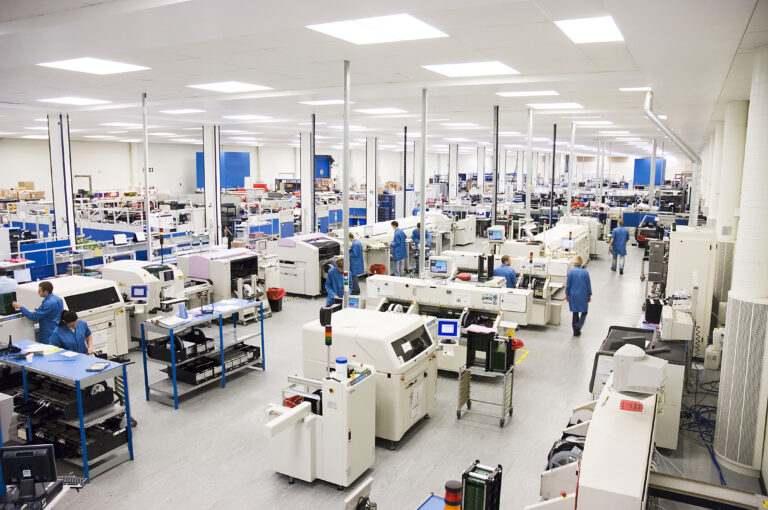The Impact of Books Biotechnology on Society
Biotechnology has revolutionized the way we perceive and interact with the world. From groundbreaking scientific advancements to ethical dilemmas, the impact of biotechnology on society is profound. This article delves into the intersection of Books Biotechnology, exploring how literature has become a powerful medium to convey the complexities and nuances of this dynamic field.
Introduction
In the vast landscape of knowledge, biotechnology stands as a beacon of innovation. Its applications extend from medicine to agriculture, reshaping the way we live. As society grapples with the implications of biotechnological advancements, authors have taken up the challenge of weaving these complex narratives into captivating stories.
The Evolution of Biotechnological Literature
Early influences and developments
Biotech literature traces its roots to the early musings of visionaries who envisioned a future where science could reshape human existence. These early influences set the stage for a genre that would evolve with the rapid progress of biotechnology.
Rise of biotech-themed literature
In recent decades, there has been a surge in literature dedicated to exploring the intricacies of biotechnology.
Educational Impact
Biotech in school curriculum
The integration of biotechnology into educational curricula has been a transformative step.
Influence on students and future careers
The exposure to biotech literature goes beyond the classroom. It sparks curiosity, inspiring the next generation of scientists and thinkers who may one day contribute to the ever-expanding field of biotechnology.
Ethical Considerations
Bioethics in literature
One of the critical aspects explored in biotech books is the ethical dimension of scientific progress. Authors navigate moral dilemmas, presenting readers with thought-provoking scenarios that challenge preconceived notions and stimulate ethical discourse.
Addressing moral dilemmas through storytelling
By addressing ethical considerations through storytelling, biotech literature serves as a catalyst for public discourse, encouraging readers to reflect on the ethical implications of scientific advancements and their potential consequences.
Cultural Perspectives
Biotechnology in different cultures
The impact of biotechnology is not uniform across cultures. Literature allows for the exploration of diverse cultural perspectives, providing a nuanced understanding of how societies grapple with the integration of biotechnological advancements.
Representation in literature
The representation of diverse voices in biotech literature is crucial. It ensures that the narratives reflect the global nature of biotechnological advancements, avoiding a skewed or narrow portrayal of the field.
Scientific Accuracy in Biotech Books
Importance of factual information
While the genre may take creative liberties, maintaining scientific accuracy is paramount. Biotech books contribute to scientific literacy by presenting factual information in a digestible and engaging format.
Balancing entertainment and education
The challenge lies in striking the right balance between entertainment and education.
Impact on Public Perception
Shaping opinions through literature
Biotech literature has the power to shape public opinion. By presenting complex scientific concepts in a relatable manner, authors contribute to a better-informed society that can actively engage in conversations about the direction of scientific progress.
Addressing misconceptions
In a world where misinformation can spread rapidly, biotech literature acts as a corrective force. It dispels myths, clarifies misconceptions, and offers a more nuanced understanding of the field.
Future Trends
Emerging themes in biotech literature
As technology advances, so do the themes explored in biotech literature. Authors are increasingly delving into topics like gene editing, artificial intelligence, and the ethical implications of futuristic biotechnological possibilities.
Technological advancements and their portrayal
The portrayal of emerging technologies in literature has a reciprocal relationship with public perception. As authors imagine future possibilities, they influence how readers envision the role of biotechnology in shaping our world.
Advantages and Disadvantages
Benefits of biotech-themed books
Biotech literature not only educates but also entertains. It opens up a gateway for individuals to explore the wonders of science in an accessible and enjoyable manner.
Potential drawbacks and challenges
However, there are challenges. Misinterpretation of scientific concepts and the risk of oversimplification pose potential drawbacks. Authors must navigate these challenges to ensure the integrity of the information presented.
Accessibility and Outreach
Promoting scientific literacy
Biotech literature contributes to the democratization of knowledge by making scientific concepts accessible to a broad audience.
Reaching diverse audiences
By catering to diverse audiences, biotech literature ensures that people from various backgrounds and levels of expertise can find narratives that resonate with them. This inclusivity is key to creating a more scientifically aware society.
Inspiring the Next Generation
Motivating future scientists and innovators
The inspirational power of biotech literature cannot be overstated. By portraying scientists as protagonists and showcasing the potential for positive change, these books motivate the next generation of innovators.
The role of inspirational biotech stories
Inspirational biotech stories have the potential to shape career choices. They inspire individuals to pursue careers in biotechnology, contributing to the growth and advancement of the field.
Collaboration between Authors and Scientists
Bridging the gap between fiction and reality
The collaboration between authors and scientists is a symbiotic relationship that enhances the authenticity of biotech literature. Scientists provide invaluable insights, ensuring that the speculative elements in books are grounded in scientific principles.
Mutual benefits and challenges
While collaboration brings about mutual benefits, challenges exist. Scientists and authors may navigate differences in communication styles and priorities.
Entertainment Value
Crafting engaging narratives
The success of biotech literature lies in its ability to craft narratives that captivate readers. This entertainment value ensures that the messages embedded in the narrative are memorable and impactful.
The balance between science and storytelling
Maintaining a delicate balance between scientific accuracy and engaging storytelling is an art. Authors must weave scientific concepts seamlessly into the narrative, avoiding the pitfall of overwhelming readers with technical jargon. Striking this balance ensures that the stories remain accessible to a wide audience.
Case Studies
Examining popular biotech books
Analyzing popular biotech books provides insights into the diverse ways authors approach the intersection of science and literature. Case studies allow us to delve into specific examples, exploring how these narratives have resonated with readers and influenced societal perceptions of biotechnology.
Analyzing their impact on society
The impact of biotech books on society is profound and varied. Through case studies, we can explore the ripple effects of these narratives, from inspiring public discourse to influencing policy decisions and shaping cultural attitudes towards scientific advancements.
Conclusion
In conclusion, the impact of books on biotechnology transcends mere storytelling. It serves as a bridge between the complex world of science and the general public, fostering understanding, sparking curiosity, and shaping societal perspectives. As biotechnology continues to advance, the role of literature in portraying its nuances becomes increasingly crucial.
FAQs
- Are the scenarios presented in biotech literature realistic.
- How can biotech literature address ethical concerns responsibly?
- By presenting moral dilemmas and engaging with bioethics, biotech literature encourages readers to contemplate ethical considerations surrounding scientific advancements.
- What role does diversity play in biotech literature?
- Diverse perspectives in biotech literature ensure a comprehensive portrayal of the field, reflecting the global nature of scientific advancements.
- Can biotech literature really inspire the next generation of scientists?
- Yes, by portraying scientists as protagonists and showcasing the positive impact of biotechnology, literature can motivate individuals to pursue careers in the field.
- How can scientists and authors collaborate effectively.






